第11章 CHAPTER II(2)
Our Muskegon builders he pronounced a pack of cormorants; and the congenial subject, together with my knowledge of architectural terms, the theory of strains, and the prices of materials in the States, formed a strong bond of union between what might have been otherwise an ill-assorted pair, and led my grandfather to pronounce me, with emphasis, "a real intalligent kind of a cheild." Thus a second time, as you will presently see, the capitol of my native State had influentially affected the current of my life.
I left Edinburgh, however, with not the least idea that I had done a stroke of excellent business for myself, and singly delighted to escape out of a somewhat dreary house and plunge instead into the rainbow city of Paris. Every man has his own romance; mine clustered exclusively about the practice of the arts, the life of Latin Quarter students, and the world of Paris as depicted by that grimy wizard, the author of the _Comedie Humaine_. I was not disappointed--I could not have been; for I did not see the facts, I brought them with me ready-made. Z.
Marcas lived next door to me in my ungainly, ill-smelling hotel of the Rue Racine; I dined at my villainous restaurant with Lousteau and with Rastignac: if a curricle nearly ran me down at a street-crossing, Maxime de Trailles would be the driver. I dined, I say, at a poor restaurant and lived in a poor hotel; and this was not from need, but sentiment. My father gave me a profuse allowance, and I might have lived (had I chosen) in the Quartier de l'Etoile and driven to my studies daily. Had I done so, the glamour must have fled: I should still have been but Loudon Dodd; whereas now I was a Latin Quarter student, Murger's successor, living in flesh and blood the life of one of those romances I had loved to read, to re-read, and to dream over, among the woods of Muskegon.
At this time we were all a little Murger-mad in the Latin Quarter. The play of the _Vie de Boheme_ (a dreary, snivelling piece) had been produced at the Odeon, had run an unconscionable time--for Paris, and revived the freshness of the legend. The same business, you may say, or there and thereabout, was being privately enacted in consequence in every garret of the neighbourhood, and a good third of the students were consciously impersonating Rodolphe or Schaunard to their own incommunicable satisfaction. Some of us went far, and some farther. I always looked with awful envy (for instance) on a certain countryman of my own who had a studio in the Rue Monsieur le Prince, wore boots, and long hair in a net, and could be seen tramping off, in this guise, to the worst eating-house of the quarter, followed by a Corsican model, his mistress, in the conspicuous costume of her race and calling. It takes some greatness of soul to carry even folly to such heights as these; and for my own part, I had to content myself by pretending very arduously to be poor, by wearing a smoking-cap on the streets, and by pursuing, through a series of misadventures, that extinct mammal, the grisette. The most grievous part was the eating and the drinking. I was born with a dainty tooth and a palate for wine; and only a genuine devotion to romance could have supported me under the cat- civets that I had to swallow, and the red ink of Bercy I must wash them down withal. Every now and again, after a hard day at the studio, where I was steadily and far from unsuccessfully industrious, a wave of distaste would overbear me; I would slink away from my haunts and companions, indemnify myself for weeks of self-denial with fine wines and dainty dishes; seated perhaps on a terrace, perhaps in an arbour in a garden, with a volume of one of my favourite authors propped open in front of me, and now consulted awhile, and now forgotten:--so remain, relishing my situation, till night fell and the lights of the city kindled; and thence stroll homeward by the riverside, under the moon or stars, in a heaven of poetry and digestion.
One such indulgence led me in the course of my second year into an adventure which I must relate: indeed, it is the very point I have been aiming for, since that was what brought me in acquaintance with Jim Pinkerton. I sat down alone to dinner one October day when the rusty leaves were falling and scuttling on the boulevard, and the minds of impressionable men inclined in about an equal degree towards sadness and conviviality. The restaurant was no great place, but boasted a considerable cellar and a long printed list of vintages. This I was perusing with the double zest of a man who is fond of wine and a lover of beautiful names, when my eye fell (near the end of the card) on that not very famous or familiar brand, Roussillon. I remembered it was a wine I had never tasted, ordered a bottle, found it excellent, and when I had discussed the contents, called (according to my habit) for a final pint. It appears they did not keep Roussillon in half-bottles. "All right," said I. "Another bottle." The tables at this eating-house are close together; and the next thing I can remember, I was in somewhat loud conversation with my nearest neighbours.